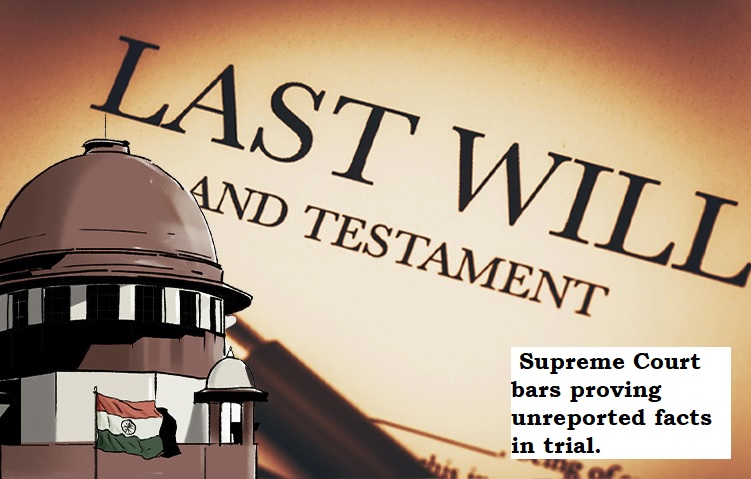


The Supreme Court, in a recent decision on January 4, made a significant ruling regarding the admissibility of evidence in criminal trials. The case involved a criminal appeal, where the accused-appellant's conviction was under scrutiny. The court observed that during a trial, the prosecution is not permitted to introduce and prove a fact that the witness had not previously stated in their statement under Section 161 of the Code Of Criminal Procedure, 1973, which pertains to the examination of witnesses by the police.
The three-judge bench, comprising Justices B. R. Gavai, P.S. Narasimha, and Aravind Kumar, underscored the principle that evidence not disclosed by a witness to the police during the investigation holds no significance during the trial. The court articulated, "Prosecution cannot seek to prove a fact during trial through a witness which such witness had not stated to the police during the investigation. The evidence of that witness regarding the said improved fact is of no significance."
The ruling emphasized the importance of statements made by witnesses during the investigation under Section 161 of the Criminal Procedure Code. If a witness fails to mention the involvement of an accused in their statement to the police, that omission renders their subsequent statements during the trial unreliable for establishing the accused's involvement.
The court expressed dissatisfaction with the Punjab & Haryana High Court's findings in the case under consideration. While the High Court had convicted one accused (appellant) for murder, it acquitted the other co-accused. The Supreme Court criticized this approach, stating that if the evidence was insufficient to prove the case against the co-accused, it could not be used to implicate the appellant.
The case involved the alleged murder of Amrik Kaur, who was married to the accused-appellant, Darshan Singh. The prosecution contended that Darshan Singh, involved in an illicit relationship with Rani Kaur, conspired to eliminate his wife. The court noted that the prosecution's case relied on circumstantial evidence, as there were no eyewitnesses to the incident.
The court analyzed the crucial circumstance of the accused and Rani Kaur being present in the appellant's house on the night of the alleged murder. It outlined two key aspects – a lighter burden on the prosecution in circumstantial cases and the duty on the accused to explain the circumstances surrounding the death. Failure to explain or offering a false explanation could become an additional link in the chain of circumstances.
Examining the testimonies of prosecution witnesses, the court raised doubts due to omissions in cross-examination, particularly from the deceased's sister and her husband. An independent witness, who failed to provide a statement to the police, led the court to question the reliability of subsequent statements made during the trial.
The court reiterated the standard of proof required from the accused under Section 313 of the Criminal Procedure Code, emphasizing that the burden lies on the prosecution to prove the charges beyond reasonable doubt. The accused's role is to create doubt, and it is then the prosecution's responsibility to dispel that doubt convincingly.
In conclusion, the Supreme Court emphasized that the circumstance of the accused and Rani Kaur being present in the house was not convincingly proved beyond doubt. The court underscored the importance of an unbroken chain of circumstances in cases relying on circumstantial evidence and cautioned against any gaps that could weaken the prosecution's case. This ruling reinforces the stringent standards for admissible evidence and the prosecution's responsibility in establishing guilt beyond a reasonable doubt.
TAGS: Supreme Court Criminal trial Prosecution Evidence Section 161